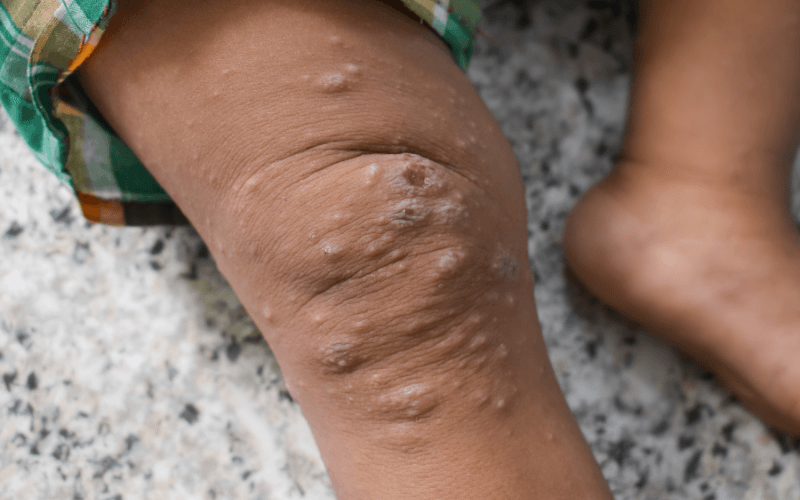
Mpox: Comprehensive Guide and the WFPHA Statement
News
Nov 19, 2024
Mpox (formerly known as monkeypox) has garnered significant global attention, particularly after being declared a Public Health Emergency of International Concern (PHEIC) by the World Health Organization (WHO) twice—in May 2022 and August 2024. While cases have stabilized in many countries, the virus remains a public health threat, particularly in the Democratic Republic of Congo and several Central and Eastern African nations, where it continues to spread and evolve.
Let’s explore what mpox is, its transmission, symptoms, prevention strategies, and the role of international organizations, includin the WFPHA statement on mpox, in combating this disease.
What Is Mpox?
Mpox is a zoonotic disease caused by the monkeypox virus, a member of the Orthopoxvirus genus. This virus has two primary clade lineages:
1. Clade I (formerly Congo Basin clade) – More severe and associated with higher mortality rates.
2. Clade II (formerly West African clade) – Generally less severe.
Key Facts About Mpox:
– Origins: It was first identified in 1958 in monkeys used for research, with the first human case recorded in 1970 in the Democratic Republic of Congo.
– Transmission: It is spread primarily through close contact with an infected person or animal and contaminated materials like bedding.
– Affected Populations: While anyone can contract mpox, it disproportionately affects populations with limited access to healthcare and those in humanitarian or conflict settings.
Symptoms of Mpox
The symptoms of mpox typically appear within 5 to 21 days of exposure and may include:
- Fever, chills, and headaches
- Muscle aches and back pain
- Swollen lymph nodes
- Rash, starting as flat lesions and progressing to pustules before crusting over
Most cases resolve within 2-4 weeks, but severe complications such as secondary infections, respiratory distress, and encephalitis can occur.
Prevention and Treatment
Vaccines
Effective vaccines against mpox are available and recommended by the WHO. These include smallpox vaccines, which offer cross-protection due to the relatedness of the viruses.
Preventive measures
Avoid close contact with infected individuals or animals.
Practice good hand hygiene
Use personal protective equipment (PPE) in healthcare settings.
Treatment
While no specific antiviral treatment for mpox exists, supportive care and antivirals like tecovirimat can help manage severe cases.
WFPHA Statement on Mpox
The World Federation of Public Health Associations (WFPHA) has issued a strong call to action in response to the ongoing mpox outbreak. The statement, finalized in Geneva on September 18, 2024, outlines critical priorities:
Health organizations, countries, and wider stakeholders can work in solidarity to protect people and stop the spread of pox. Equity should be embedded strategically in decision-making and at the heart of the response.
Support for WHO and Partners:
The WFPHA supports the WHO, African CDC, UNICEF, CEPI, Gavi, the World Bank, and the IMF in coordinating efforts to combat mpox.
Equity and Transparency:
Drawing lessons from COVID-19 and Ebola, the WFPHA emphasizes equitable and transparent vaccine production, distribution, and pricing.
Pandemic Treaty:
The WFPHA urges all 194 WHO member states to intensify efforts toward a pandemic treaty, highlighting its necessity now more than ever.
African Leadership:
The WFPHA underscores the importance of African leadership in guiding the mpox response while fostering inter- and intra-country learning.
Climate Crisis:
The WFPHA recognizes the climate crisis as a root cause of zoonotic epidemics and calls for urgent global action to address environmental challenges.
A Call for Collaboration
The WFPHA also stresses the need for evidence-based public health management and collaboration across sectors to tackle the complexities of this outbreak, which involves multiple clades, diverse populations, and challenging humanitarian contexts.
Why Mpox Matters
Mpox exemplifies the interconnectedness of global health issues, where infectious diseases, climate change, and inequities in healthcare systems converge. As the virus evolves and spreads, it underscores the need for coordinated, equity-focused responses from governments, organizations, and communities worldwide.
By prioritizing evidence-based strategies and solidarity, we can not only control the current mpox outbreak but also build resilient systems to prevent future zoonotic epidemics.
Conclusion
Mpox is more than a viral outbreak—it’s a test of our global public health systems, equity in access to resources, and the ability to work collaboratively. As outlined in the WFPHA statement on mpox, concerted efforts at all levels are critical to ending the spread of the virus and preventing future health crises.
Learning from past pandemics and addressing systemic issues can create a healthier, more equitable world.
